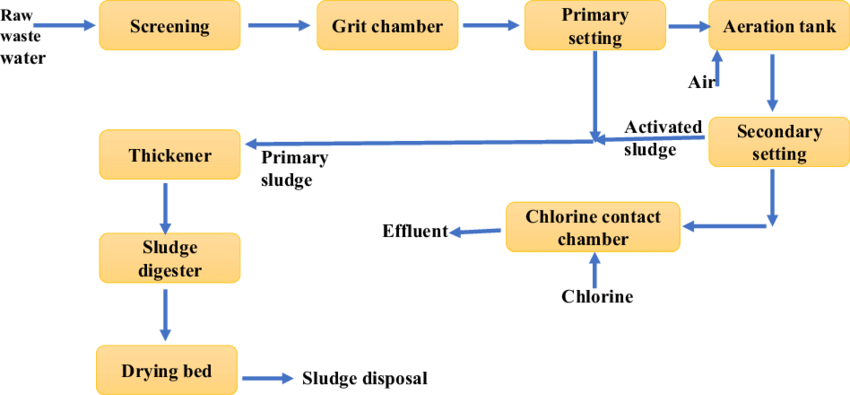Reclaim Waste - An Overview
Reclaim Waste - An Overview
Blog Article
All about Reclaim Waste
Table of ContentsWhat Does Reclaim Waste Do?Our Reclaim Waste IdeasSome Known Details About Reclaim Waste The Ultimate Guide To Reclaim WasteThe Buzz on Reclaim Waste
Explore the types, occurrences, and forms of fluid waste. Domestic sewer waste refers to the waste and products from a residential septic system. This kind of waste is created by human beings in homes, institutions, and various other buildings. This only consists of septic systems that have a drainpipe field. The correct management and disposal of residential sewage waste call for liquid waste to be moved to a sewage therapy plant where the correct techniques and equipment are put on cleanse and dispose of waste.
Commercial waste commonly includes potential dangers, such as combustible materials or a blend of fluid and solid waste products, and needs an extra advanced and thorough disposal procedure. The disposal of commercial waste commonly involves the purification of waste prior to transport to guarantee risk-free and correct disposal. Industrial waste is produced from results and drainage of industrial processes and production.
This type of waste can not utilize the very same sewer monitoring transport or procedures as septic or commercial liquids. The hazardous waste administration process needs the examination and screening of fluid waste prior to it undergoes the disposal process (liquid waste removal). Overflow waste is the liquid waste that comes from overflow and excess stormwater in extremely populated areas or cities
Overflow waste can trigger contamination and flooding if not dealt with appropriately. Discover more concerning sewage system cleansing and waste administration. Making certain correct waste monitoring can protect against calamities and minimize environmental harm. Both people in residential settings and specialists in business or production markets can take advantage of understanding the processes and laws of fluid waste administration.
The Ultimate Guide To Reclaim Waste
Contact PROS Providers today to discover our waste administration and disposal solutions and the correct methods to look after the liquid waste you produce.
(https://medium.com/@leonaube33101/about)Do you understand what occurs to your water when you disengage, purge the bathroom or drain the cleaning device? No? Well, it's worth recognizing. This supposed 'wastewater' is not only a vital source however, after treatment, will be released to our land, waterways or the sea. Utilized water from bathrooms, showers, bathrooms, kitchen area sinks, laundries and industrial processes is called wastewater.

water utilized to cool down machinery or tidy plant and equipment). Stormwater, a type of wastewater, is overflow that flows from agricultural and city areas such as roofs, parks, gardens, roadways, courses and rain gutters right into stormwater drains, after rain. Stormwater moves without treatment straight to regional creeks or rivers, eventually getting to the sea.
About Reclaim Waste
In Queensland, the majority of wastewater is dealt with at sewage treatment plants. Wastewater is delivered from residential or commercial sites with a system of sewers and pump stations, referred to as sewage reticulation, to a sewer therapy plant. Regional federal governments build, preserve and operate most sewage treatment plants. Operators are licensed under the Environmental Management Act 1994 to release cured wastewater at an appropriate environmental requirement into rivers.
The Division of Natural Resources advises regional governments about handling, operating and keeping sewerage systems and treatment plants. In unsewered locations, city governments may need owners to set up individual or household sewage therapy systems to deal with domestic wastewater from toilets, kitchens, washrooms and washings. The Department of Natural Resources authorizes the usage of home systems when they are proven to be reliable.
Most stormwater gets no therapy. In some new class, therapy of some stormwater to get rid of trash, sand and gravel has actually begun using gross toxin traps. Wastewater treatment takes place in four phases: Gets rid of solid issue. Larger solids, such as plastics and other things incorrectly released to sewers, are gotten rid of when wastewater is passed via screens.
Utilizes tiny living microorganisms knows as micro-organisms to break down and get rid of staying dissolved wastes and great bits. Micro-organisms and wastes are incorporated in the sludge.
The Ultimate Guide To Reclaim Waste
Nutrient removal is not offered whatsoever sewer therapy plants because it calls for expensive specialized tools. It is coming to be extra usual in Queensland. Clear liquid effluent created after treatment might still include disease-causing micro-organisms. If this effluent is released into rivers such as rivers or the sea, the micro-organisms will ultimately pass away out.

This usually implies wastewater has to be treated or pollutants gotten rid of prior to it can be released to rivers. Many wastewater moves into the sewerage system. Under the Act, local federal governments administer our website approvals and licences for environmentally pertinent tasks (ERAs) involving wastewater releases that could have a neighborhood influence. The department administers authorizations and licences to ERAs entailing wastewater launches that may have a regional or statewide effect.
A Biased View of Reclaim Waste
Or else, examples are considered laboratory analysis. Typically many examinations are required to develop the levels of each of the different toxins such as oils, heavy metals and pesticides in water. Tracking gives factual info concerning water high quality and can verify that licence conditions are being met. The details gotten via surveillance supplies the basis for making water high quality decisions.
Report this page